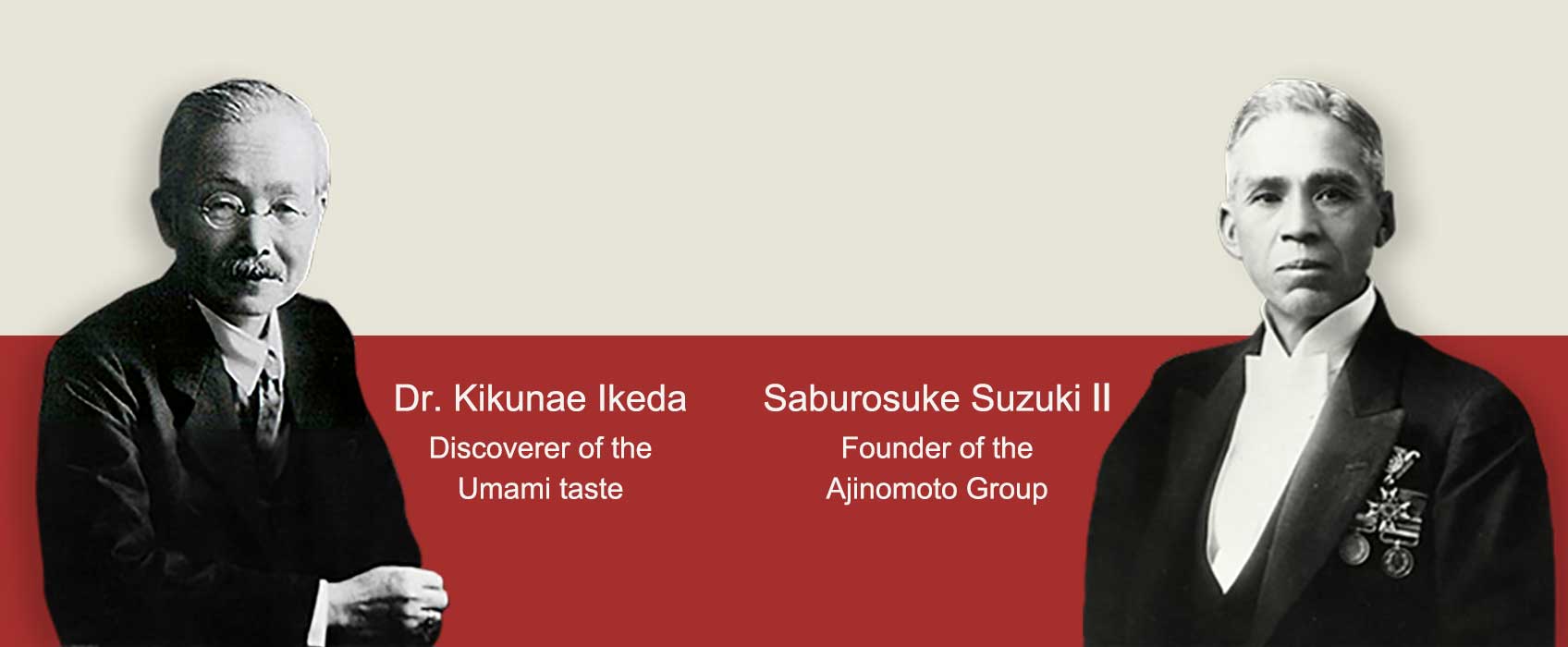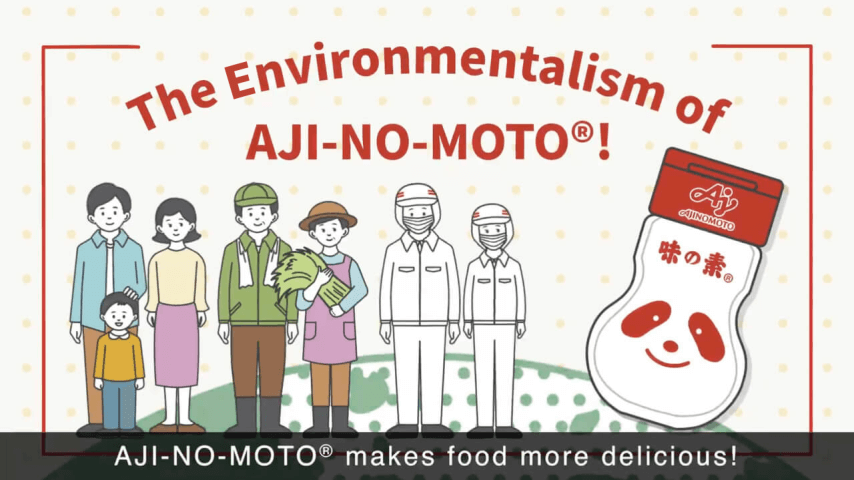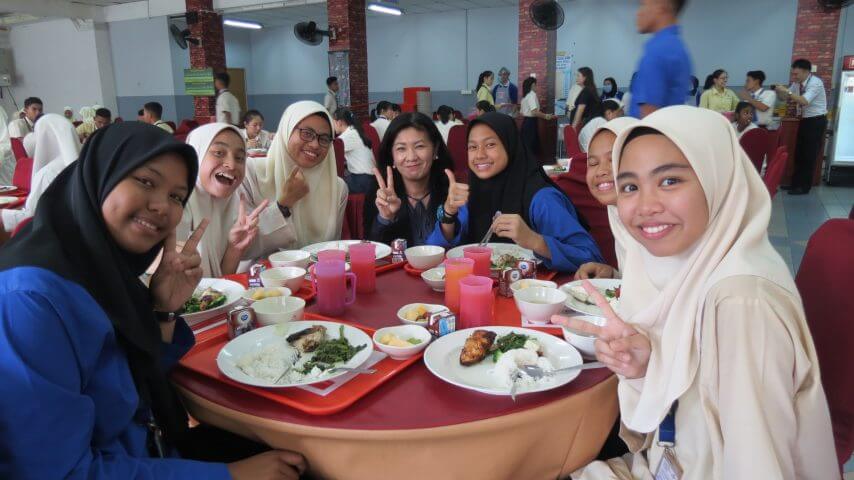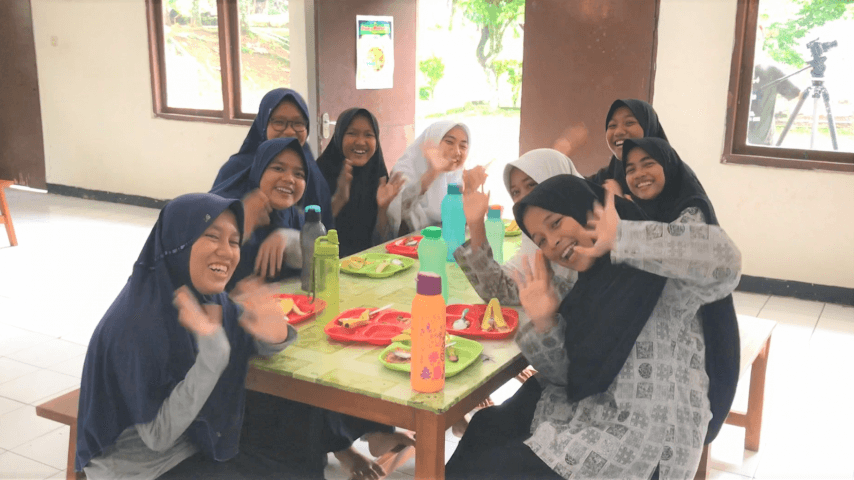What is ASV?
What is ASV?
ASV stands for “Ajinomoto Group Creating Shared Value,” which is based on the expression “creating shared value,” or CSV for short. In addition to pursing sales and profits, a company that practices CSV creates social value by addressing social issues and problems through its business activities, and, as a result, creates economic value as well.
We believe efforts to create social and economic value in this way are what ASV is all about, and that evolving ASV the Ajinomoto Group’s vision and purpose.
What ASV Means to Me
How do members of the Ajinomoto Group understand and work on this ASV on their own?
Human beings
“Helping people get healthy by providing food that is safe and good for the body”
Ajinomoto Frozen Foods Co., Inc.
Ayano Ishida
“I want to help as many athletes as possible who are using sport to push the limits of human potential and also contribute to our business.”
Sports Nutrition Dept.
Masanao Taniyama
Our society
“I believe that a society using co-products that would otherwise be discarded is a practical example of ASV that provides both business and social value.”
Kyushu Plant
Sho Sugawara
“I greatly appreciate the nutrition knowledge I have gained from the company’s sessions and from being a member of the company’s ASV communication team. I believe we can contribute to social value and economic value by sharing that knowledge with people inside and outside the company.”
AJINOMOTO CO., (THAILAND) LTD.
Papha Sinprom
Our planet
“By reducing waste, we can reduce food loss and our environmental impact. That is my ASV.”
Food Production & Technology Administration Center
Fan Xiaohu
“Wastewater treatment problems in factories affect production and directly impact rivers and the environment. We are standardizing and automating our wastewater purification technology to accelerate the reduction of environmental impact and improve labor saving.”
Production & Technology Administration Center
Kenzo Kawai
We’ve practiced ASV from the very beginning
The term “ASV” and its corresponding policy were first articulated in the Ajinomoto Group’s 2014-2016 Mid-Term Management Plan issued in 2014. Yet it can be said we’ve been practicing ASV ever since our founding in 1909, over 110 years ago.
In 1899, Dr. Kikunae Ikeda—who would later discover umami, the fifth taste—traveled to Germany to study. Impressed by the healthy physiques of the German people, he resolved to dedicate himself to raising nutritional standards back home in Japan. Another man who shared this dream was Saburosuke Suzuki II, and in 1909 he launched a company to sell AJI-NO-MOTO®, the world’s first umami seasoning. This marked the beginning of the history of the Ajinomoto Group’s efforts to solve social issues through its business activities, the very essence of ASV.

Dr. Kikunae Ikeda, discoverer of umami (left), and Saburosuke Suzuki II, founder of the Ajinomoto Group
The origins of the Ajinomoto Group lie in these two men’s founding aspiration of “Eat Well, Live Well.” that still informs ASV today.
Enhancing Corporate Value through the ASV Management Cycle
ASV is a strategic initiative for achieving sustainable growth.
By reinvesting the economic value created by solving social issues through our business operations into further activities, we create a virtuous cycle that contributes to solving yet more social issues. By perpetuating this cycle, we enhance our corporate value.
In 2020 we created the ASV Management Cycle and established a four-step process aimed at enhancing employee engagement with ASV by encouraging employees to make ASV as one’s own initiative, an indispensable element of value creation.
Management cycle for ASV results creation
The process of enhancing employee engagement with ASV begins with employees setting goals they wish to achieve through their work. Developed through dialogue between employees and the CEO and general managers of each division, these personal goals are linked to organizational goals. Employees then present their ASV to an audience of peers. This process fosters a corporate culture that encourages employees to challenge themselves while gaining the support of their colleagues.
The ASV Awards was created to recognize outstanding examples of employee-driven initiatives that embody ASV. The aim is to encourage individual employees to make ASV as one’s own initiative by recognizing and sharing best practices for the realization of ASV. The awards is expanding, with affiliates in countries like Brazil and Thailand launching their own ASV awards.
In this way, the understanding and acceptance of ASV among Ajinomoto Group employees has grown. By considering how they can practice ASV in their own work to create social and economic value, employees are continually challenging themselves to solve larger social issues.
Examples of ASV
The Ajinomoto Group engages in a variety of ASV initiatives to address social issues and problems through its business operations.

Completing the bio-cycle: AJI-NO-MOTO® co-products help to boost agricultural output
If you like to cook from scratch, you must have noticed how much gets thrown away. Stems, seeds, leaves, peels—all go in the rubbish bin ...

Localized approaches to reducing plastic are moving the Ajinomoto Group toward zero waste by 2030
According to the United Nations Environment Programme, the world produces 300 million tons of plastic waste every year. That’s nearly the total weight of every ...

Smart solutions to reducing salt without compromising taste
Japan is renowned for its simple yet elegant cuisine, or washoku, and long life expectancy. But while the Japanese diet is packed with a wide ...

Nurturing future champions—a sports nutrition awareness project targets student athletes in Malaysia
Every parent of a teenager knows how hard it is to get young people to eat well, what with schoolwork, social pressures and the demands ...

Karaage— a new allergy-conscious take on a classic recipe
Parents today may notice a greater awareness around food allergies compared to when they were young. Even if your own children are allergy free, they ...

Nurturing young minds and bodies: School Lunch Program in Indonesia
School meals play a key role in child nutritionEven in wealthy industrialized countries like Japan and the US, children from economically disadvantaged backgrounds often rely ...
